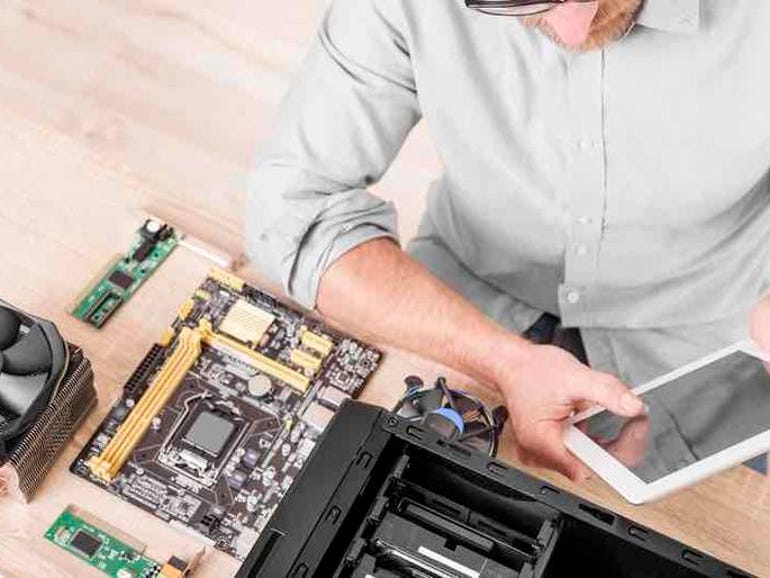Right To Repair Doesn't Go Far Enough (here's What We Need To Happen To See Real Change)

It might shock some people to know that while I'm a supporter of the Right to Repair, the movement pressing for government legislation to allow consumers and businesses to repair and modify their stuff, I don't think that it will help consumers that much in the long run.
This is not to say that people shouldn't be able to repair their stuff. Absolutely not, and being able to repair things is crucial in keeping things out of the junk pile. But I think that the movement is focusing on a specific niche and ignoring the broader problems.
The problem that I see that needs to be addressed is two-fold.
First, people don't repair things that much. Sure, there's a niche that does, but it's a small number of people. The idea that having a Right to Repair is going to get people repairing their broken stuff is fantasy.
Bottom line, it's just not easy.
Most of the repairs I do -- things from big things like washing machines and cars to small stuff like smartphones and laptops -- need specialist tools and a fair bit of know-how. I've done enough follow-up repairs on things that someone has already tried to repair something, to know how tricky people find it.
Giving people access to parts isn't going to help. If anything, they're going to pour more cash into something and break it further.
Another problem I've seen a lot is people buying the wrong parts, or not buying everything they need. With some repairs it's pretty obvious what the problem is and what's needed to fix it -- broken screen on a smartphone, for example -- but diagnosing problems can be tricky (and again, require specialist equipment).
Ultimately, I don't see Right to Repair as being consumer-friendly.
The people I see Right to Repair benefitting the most are the companies that are in the business of repairing things, which is good, but is essentially pushing the burden -- and cost -- of repair things onto the consumer.
Here's my idea for making products more reliable and keep things out of recycling centers for longer -- mandatory 3-year parts and labor warranty on gadgets.
Simple.
Pass the buck to the manufacturer. Obviously, this wouldn't cover accidental damage or wear and tear (this is where Right to Repair would come into play), but it would shift the burden of repairs relating to a product's poor lifespan squarely onto the maker.
Almost overnight we'd see products last longer.
This, more than anything, would improve long-term reliability of products, benefitting the consumer far better than a right to repair alone.
Because the issue as I see it nowadays is less about repair, but one of longevity and lifecycle.
Don't think that goes far enough? Make it a 5-year warranty then.
The ultimate goal has to be products that last longer, not giving manufacturers a new income stream selling replacement parts.
You can bet that companies would fight this tooth and nail, because it would upend many business models. But if we are looking for solutions that will benefit both consumers and the environment, having things that last longer should be the ultimate goal.
Comments? Thoughts? Put them in the comments below.
Adaptation And Innovation: Revolut's Response To Banking License Delay Through Advertising Sales Push
As Revolut eagerly awaits the acquisition of its banking license, the fintech giant has demonstrated remarkable adaptabi... Read more
Riding The Wave: The Evolution Of Fintech Investment Strategies
The fintech industry has experienced unprecedented growth in recent years, captivating the attention of investors worldw... Read more
How Fintech Is Revolutionizing Traditional Banking
How fintech is revolutionizing traditional banking is a topic that is garnering positive and immense discourse within th... Read more
Blockchain And Its Impact On Fintech Industry
Blockchain and its impact on Fintech Industry has become a hot topic in the current digital era. The amalgamation of blo... Read more
The Rise Of Fintech In The Digital Era
In the heart of the digital revolution, we've observed a term termed as "fintech" creating a substantial and transformat... Read more
Role Of Fintech In Transforming Retail Banking
The role of fintech in transforming retail banking is producing significant changes in the financial services industry. ... Read more

